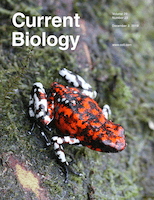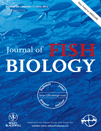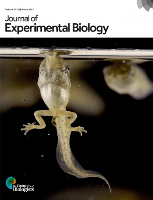
CURRENT BIOLOGY
Scope & Guideline
Exploring the Depths of Life Sciences Innovation
Introduction
Aims and Scopes
- Evolutionary Biology:
The journal covers research that investigates the evolutionary processes shaping biodiversity, including speciation, adaptation, and the genetic underpinnings of evolutionary changes. - Ecology and Environmental Biology:
CURRENT BIOLOGY publishes studies on ecological interactions, environmental challenges, and conservation strategies, highlighting the impact of human activities on ecosystems. - Neurobiology and Behavior:
Research addressing the neural mechanisms underlying behavior, cognition, and sensory processing is a key focus, exploring how organisms interact with their environments. - Molecular and Cellular Biology:
The journal features investigations into cellular processes, signaling pathways, and molecular mechanisms that drive biological functions and development. - Plant Biology:
CURRENT BIOLOGY emphasizes studies on plant physiology, development, and interactions with biotic and abiotic factors, including research on plant responses to environmental stress. - Comparative Biology:
The journal encourages comparative studies across species, providing insights into evolutionary adaptations and functional traits.
Trending and Emerging
- Genomics and Bioinformatics:
The integration of genomics, transcriptomics, and bioinformatics is increasingly prevalent, allowing researchers to explore complex biological questions through big data analysis. - Microbiome Research:
Studies focusing on the microbiome and its influence on health, ecology, and evolution are rapidly growing, reflecting a broader interest in host-microbe interactions. - Climate Change and Biodiversity:
Research addressing the impacts of climate change on biodiversity and ecosystem dynamics is gaining traction, highlighting the urgent need for conservation strategies. - Neuroethology and Behavioral Ecology:
There is a rising interest in neuroethological approaches that combine neuroscience with behavioral ecology, providing insights into how brain mechanisms drive behavior in natural contexts. - Synthetic Biology and Biotechnology:
Innovations in synthetic biology and biotechnology are emerging as key areas of focus, exploring applications in medicine, agriculture, and environmental sustainability.
Declining or Waning
- Traditional Taxonomy:
Research primarily focused on classical taxonomic classifications has decreased, likely due to advances in molecular phylogenetics and genomic approaches that offer more nuanced insights into species relationships. - Paleobiology:
While still relevant, studies specifically centered on paleobiological aspects have waned, possibly as the field shifts towards integrating paleontological data with modern genomic and ecological frameworks. - Behavioral Studies in Isolation:
Research that examines behavior in isolation, without consideration of ecological or evolutionary contexts, appears to be declining as integrative approaches become more favored. - Genetic Mapping of Traits:
There has been a noticeable reduction in the publication of studies solely focused on genetic mapping, as the field moves towards understanding gene function in ecological and evolutionary contexts.
Similar Journals

BANGLADESH JOURNAL OF BOTANY
Nurturing the Future of Botanical ResearchBANGLADESH JOURNAL OF BOTANY is a prominent publication in the field of plant sciences, dedicated to advancing research and knowledge within the botanical community. Published by the BANGLADESH BOTANICAL SOC, this journal serves as a vital platform for researchers and scholars seeking to disseminate their findings related to plant biology, ecology, and conservation practices, particularly within the unique context of Bangladesh's diverse flora. With an ISSN of 0253-5416 and an E-ISSN of 2079-9926, the journal encompasses a wide scope of topics, reflecting interdisciplinary approaches in botanical research. Since its inception, with convergence periods from 1996 to 2001 and from 2003 to 2024, it has garnered recognition, positioned in the Q4 category in the Plant Science field with a ranking of #459/516 in Scopus, indicating its contribution to the field despite its developing impact. Operating within Bangladesh, at the UNIV DACCA DEPT BOTANY, the journal provides a crucial insight into the ecological and agricultural implications of plant studies in the region, catering to the needs of academics, professionals, and students eager to engage with contemporary botanical research.

Cold Spring Harbor Perspectives in Biology
Elevating Scientific Discourse in Biochemistry and GeneticsCold Spring Harbor Perspectives in Biology is a prestigious academic journal published by COLD SPRING HARBOR LAB PRESS that serves as a vital resource in the fields of Biochemistry, Genetics, and Molecular Biology. With an impressive impact factor and categorized in the Q1 quartile for its contributions, this journal is renowned for curating comprehensive reviews that synthesize the latest advancements and ongoing research in these dynamic and interconnected disciplines. Since its inception in 2009, the journal has played a pivotal role in advancing scientific knowledge through high-quality articles that cater to researchers, professionals, and students alike. Although it operates on a traditional subscription model, its contributions are indispensable for those seeking to remain at the forefront of biological research and its myriad applications. With a commendable ranking of #19 out of 221 in general biochemistry, genetics, and molecular biology on Scopus, this journal ensures that its readers have access to cutting-edge insights and a rigorous academic discourse.

BMC PLANT BIOLOGY
Empowering the Future of Plant BiologyBMC Plant Biology, published by BMC, is a leading open-access journal devoted to the field of plant science, presenting high-quality research that contributes significantly to the understanding of plant biology. Since its inception in 2001, the journal has established itself as a prominent platform for disseminating innovative research, achieving a commendable Q1 ranking in Plant Science within the 2023 Scopus quartiles, and ranking #39 out of 516 journals in the Agricultural and Biological Sciences category, indicating its substantial impact with a 92nd percentile ranking. Researchers, professionals, and students engaged in the study of plant biology will find a wealth of knowledge in its comprehensive scope, covering critical areas such as molecular biology, genetics, ecology, and biotechnology. The journal's commitment to open access ensures that cutting-edge research is available to a global audience, fostering collaboration and advancement in the field. BMC Plant Biology continues to inspire and facilitate growth in plant-related studies, making it an invaluable resource for anyone interested in the vibrant and essential domain of plant science.

JOURNAL OF EVOLUTIONARY BIOCHEMISTRY AND PHYSIOLOGY
Pioneering Research in Evolutionary Biochemistry and PhysiologyJOURNAL OF EVOLUTIONARY BIOCHEMISTRY AND PHYSIOLOGY, published by PLEIADES PUBLISHING INC, is a pivotal periodical that delves into the intricate relationships between biochemical processes and evolutionary dynamics. With its ISSN 0022-0930 and E-ISSN 1608-3202, this journal serves as a comprehensive platform for researchers, professionals, and students dedicated to understanding the physiological adaptations and biochemical mechanisms influenced by evolutionary pressures. Although it is not an open access journal, it offers valuable insights across its historically significant coverage spanning from 1972 to 2017, making it an essential resource for those working in agricultural, biological, and molecular sciences. Despite its current Scopus rankings revealing limited visibility within its fields, the journal remains committed to fostering scholarly dialogue and advancing knowledge in the realm of evolutionary biochemistry, especially for those exploring the ecological, genetic, and integrative physiological aspects of life.

Journal of Biological Research-Thessaloniki
Elevating the Impact of Biological Research Worldwide.Journal of Biological Research-Thessaloniki, published by Aristotle University of Thessaloniki, is a distinguished academic journal committed to advancing the fields of Agricultural and Biological Sciences and Biochemistry, Genetics and Molecular Biology. As an Open Access journal since 2004, it provides a platform for the rapid dissemination of innovative research that spans diverse biological disciplines. With an impact factor that situates it in the Q2 category for Agricultural and Biological Sciences and Q3 for Biochemistry, Genetics and Molecular Biology as of 2023, the journal demonstrates a significant contribution to its respective fields. Located in Thessaloniki, Greece, it serves a global audience of researchers, professionals, and students eager to access quality scientific content. The journal is dedicated to publishing original research articles, reviews, and critical commentaries, encouraging collaboration and dialogue amongst scientists dedicated to the frontiers of biological research.

Current Plant Biology
Pioneering Research for a Greener FutureCurrent Plant Biology is a distinguished peer-reviewed journal published by ELSEVIER, focusing on the dynamic and rapidly evolving field of plant sciences. Since its inception as an Open Access publication in 2014, it has established itself as a leading platform for innovative research, boasting a remarkable Impact Factor that underscores its relevance and contribution to the scientific community. Based in the Netherlands, this journal caters to a diverse audience of researchers, professionals, and students, facilitating the dissemination of key findings in an array of disciplines including biochemistry, genetics, cell biology, and developmental biology. Recognized for its rigorous standards, Current Plant Biology holds a prestigious standing, classified within the Q1 and Q2 quartiles of various Scopus categories, reflecting its impact and reputation in the realms of Plant Science and related fields. The journal is committed to providing accessible and high-quality research outputs that inspire further investigation and collaboration in plant biology.

JOURNAL OF FISH BIOLOGY
Diving into the Science of Fish RelationshipsJOURNAL OF FISH BIOLOGY, published by Wiley in the United Kingdom, is a distinguished peer-reviewed journal dedicated to advancing the understanding of the biology and relationships of fishes. With a robust history from its inception in 1969 to its future publications extending into 2024, the journal occupies a pivotal position in the academic landscape of aquatic sciences and ecology. Holding a notable Impact Factor and recognized within the second quartile (Q2) for both Aquatic Science and Ecology, Evolution, Behavior and Systematics, it serves as an essential resource for researchers, professionals, and students alike. The journal’s contributors delve into diverse topics ranging from evolutionary biology to conservation strategies, fostering a dynamic interchange of knowledge and innovation within the fish biology community. Access options are currently via subscription, ensuring high-quality, curated content that reflects the latest empirical research and theoretical advancements in the field.

BIOLOGY BULLETIN
Bridging Gaps in Biological Research for Global Impact.BIOLOGY BULLETIN is a prominent academic journal published by PLEIADES PUBLISHING INC, dedicated to advancing the fields of Agricultural and Biological Sciences as well as Biochemistry, Genetics, and Molecular Biology. With an ISSN of 1062-3590 and E-ISSN of 1608-3059, the journal has been a vital resource for researchers and professionals since its commencement in 1996. Located in the United States, BIOLOGY BULLETIN operates within a highly competitive academic landscape, achieving a 2023 ranking in the Q3 quartile for Agricultural and Biological Sciences and Q4 for Biochemistry, Genetics, and Molecular Biology, highlighting its commitment to delivering impactful research despite its challenges. Researchers seeking to publish their findings will find a platform for significant insights, as reflected in its Scopus rankings, where it stands at #183 and #199 out of 221 in its respective categories, showcasing opportunities for growth and visibility. While currently not an open-access publication, BIOLOGY BULLETIN plays a crucial role in facilitating scholarly communication and fostering an understanding of biological sciences, making it an essential read for academics, professionals, and students alike.

JOURNAL OF EXPERIMENTAL BIOLOGY
Bridging Knowledge Gaps in Ecology and PhysiologyJOURNAL OF EXPERIMENTAL BIOLOGY, published by COMPANY BIOLOGISTS LTD, stands as a cornerstone in the fields of Animal Science, Aquatic Science, Ecology, Insect Science, and Physiology. With a rich history dating back to 1945, this esteemed journal has continually provided a platform for high-quality research, evidenced by its impressive Q1 rankings across multiple categories in the 2023 Journal Citation Reports. Located in the United Kingdom, it serves an international audience, offering critical insights and advancements in various biological sciences. As a non-open access journal, it provides rigorous peer-reviewed articles that contribute profoundly to our understanding of biological processes and their implications. With an extensive reach among researchers, practitioners, and academia, the JOURNAL OF EXPERIMENTAL BIOLOGY is not only a repository of knowledge but also a catalyst for ongoing research and innovation in experimental biology.

Open Life Sciences
Connecting Researchers to a World of DiscoveryOpen Life Sciences is a distinguished open-access journal published by DE GRUYTER POLAND SP Z O O, dedicated to advancing research across diverse disciplines in the life sciences. Since its inception in 2014 and transitioning to open access in 2015, the journal has become a pivotal platform for researchers, fostering the dissemination of high-quality scientific work while ensuring that valuable findings are freely accessible to the global community. With an impressive categorization into Q2 in Agricultural and Biological Sciences and Q3 in several other fields including Biochemistry and Immunology as of 2023, Open Life Sciences promotes innovation and knowledge sharing across its broad spectrum of topics. The journal's commitment to excellence is reflected in its competitive Scopus rankings, making it an essential resource for professionals and students alike who are keen to stay at the forefront of life sciences research.